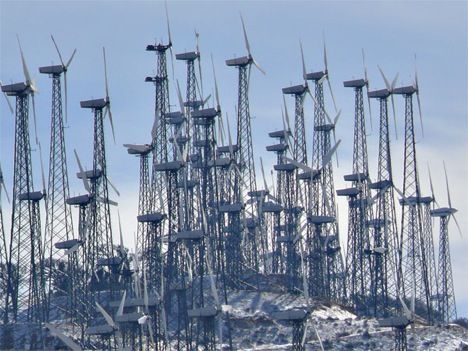In today’s world, where concerns about environmental sustainability and energy costs are ever-present, efficient home energy management has become a top priority for homeowners.
The way we power our homes not only affects our monthly bills but also has a significant impact on the planet.
In this blog, we will explore the importance of home energy management and share some practical tips to make your home more energy-efficient, ultimately reducing your carbon footprint and saving you money.
Understanding the Impact
Before delving into energy-saving strategies, it’s essential to understand the significance of home energy consumption. Residential energy use accounts for a substantial portion of global energy consumption and greenhouse gas emissions.
In the United States, for instance, households are responsible for approximately 20% of the country’s total energy consumption. This highlights the importance of making our homes more energy-efficient.
Benefits of Efficient Home Energy Management
-
Cost Savings: One of the most apparent benefits of efficient home energy management is the potential for significant cost savings. By reducing your energy consumption, you can lower your monthly utility bills, freeing up more money for other expenses or investments.
-
Environmental Impact: Cutting down on energy usage also has a positive impact on the environment. Lower energy consumption means reduced greenhouse gas emissions, which contribute to climate change. By being more energy-efficient at home, you can do your part in mitigating climate change and preserving the planet for future generations.
-
Increased Comfort: Energy-efficient homes tend to be more comfortable to live in. Improved insulation, better heating and cooling systems, and advanced technologies like smart thermostats can help maintain a consistent and comfortable indoor environment.
Tips for Efficient Home Energy Management
-
Conduct an Energy Audit: Start by assessing your current energy usage. An energy audit can help you identify areas where you can make improvements. You can hire a professional or perform a DIY audit by inspecting your home for leaks, drafts, and inefficient appliances.
-
Upgrade to Energy-Efficient Appliances: Consider replacing old, energy-guzzling appliances with energy-efficient models. Look for the ENERGY STAR label, which indicates products that meet strict energy efficiency guidelines set by the Environmental Protection Agency (EPA).
-
Insulate Your Home: Proper insulation can prevent heat loss during the winter and keep your home cooler in the summer. This can significantly reduce your heating and cooling costs. Focus on insulating your attic, walls, and windows.
-
Seal Leaks and Drafts: Air leaks and drafts can waste a substantial amount of energy. Seal gaps around doors, windows, and vents to prevent warm or cool air from escaping. Weatherstripping and caulking are effective solutions.
-
Install a Smart Thermostat: Smart thermostats are a valuable addition to any home energy management plan. They learn your preferences and adjust heating and cooling accordingly, optimizing energy use and saving you money.
-
Use Energy-Efficient Lighting: Replace traditional incandescent bulbs with energy-efficient LED or CFL bulbs. These bulbs last longer and use significantly less energy.
-
Unplug Unused Devices: Many electronic devices consume energy even when they are turned off. Use power strips to easily disconnect devices when they are not in use to prevent “phantom” energy consumption.
-
Opt for Renewable Energy: If possible, consider installing solar panels on your property. Solar energy is a clean and sustainable source of power that can significantly reduce your reliance on traditional energy sources.
-
Upgrade Your Windows: Energy-efficient windows with double or triple glazing can improve insulation and reduce heat transfer, lowering your energy bills.
-
Practice Energy Conservation: Encourage your family to adopt energy-saving habits. Turn off lights when leaving a room, unplug chargers and devices, and avoid excessive heating or cooling.
Conclusion
Efficient home energy management is not only a responsible choice for the environment but also a wise financial decision.
By taking steps to reduce your energy consumption, you can lower your monthly bills, decrease your carbon footprint, and create a more comfortable living environment.
The key is to start small, gradually implement these energy-saving strategies, and gradually enjoy the benefits of a greener, smarter home. Together, we can contribute to a more sustainable future for ourselves and generations to come.
Author Section:
Suzzain is a passionate and insightful blogger, known for her captivating writing style and keen eye for detail. With a knack for storytelling, Suzzain takes readers on immersive journeys through her blog. Check out her pieces on information in sites like Green Energy Journals, Daily Notes Journals, Content Notes Journals, The Property Bulletin, Times Today Magazine, News Times Magazine, Decoimagination, Gossiplyf, Global Sports Magazine





